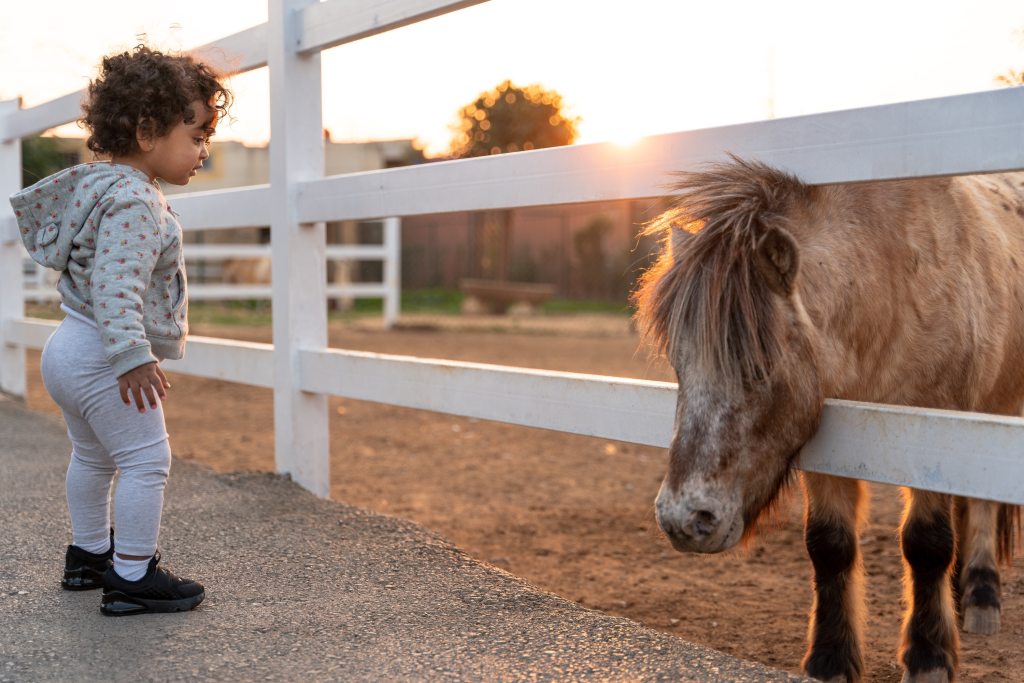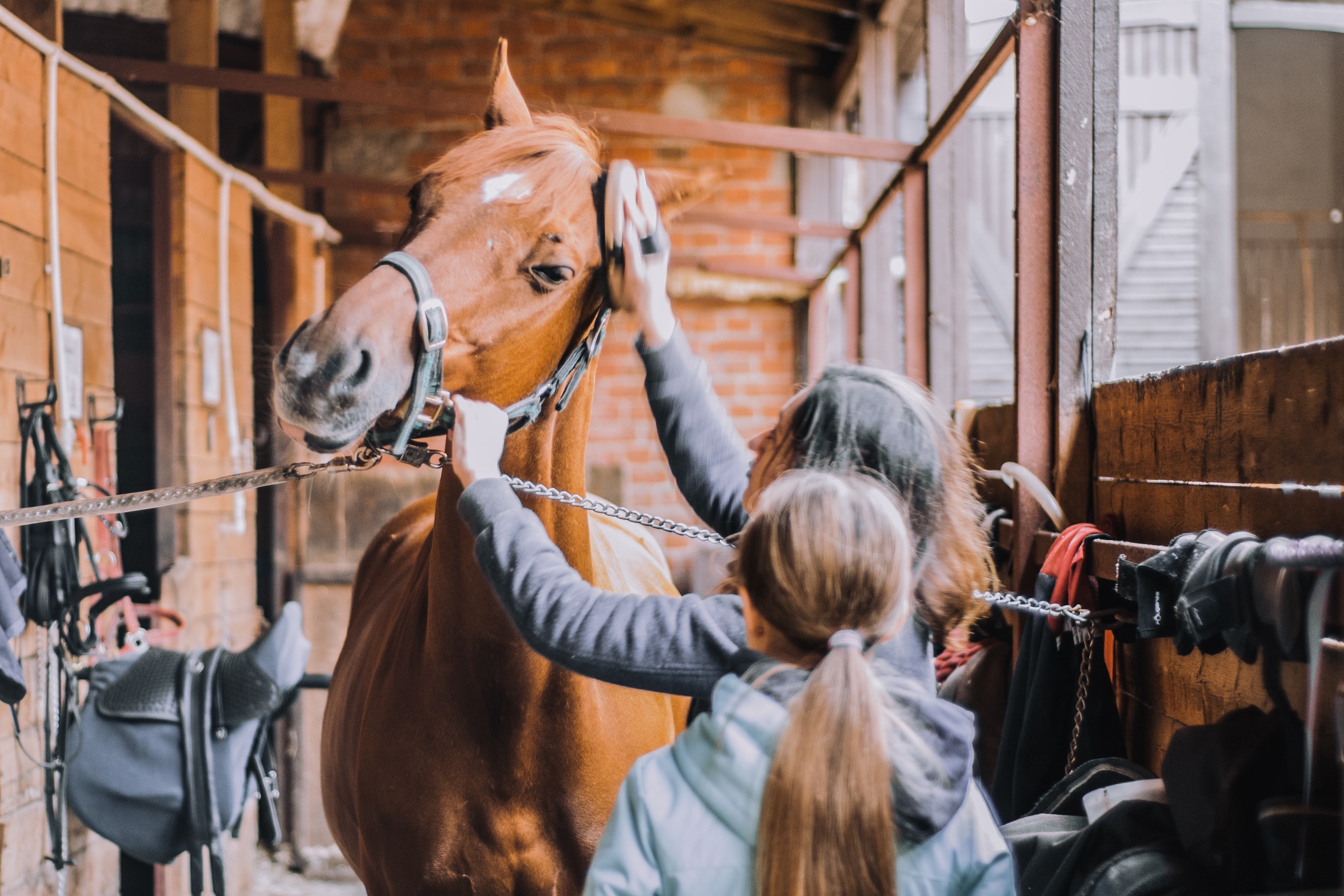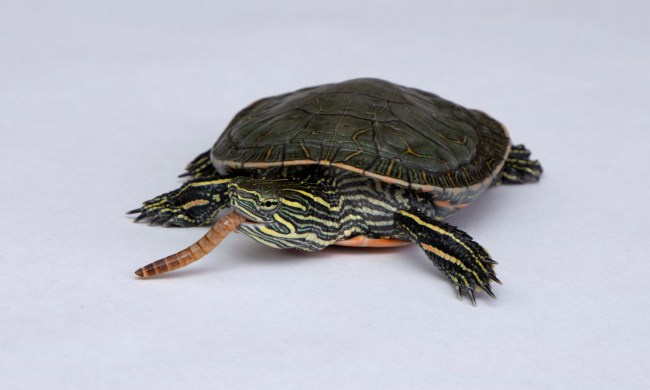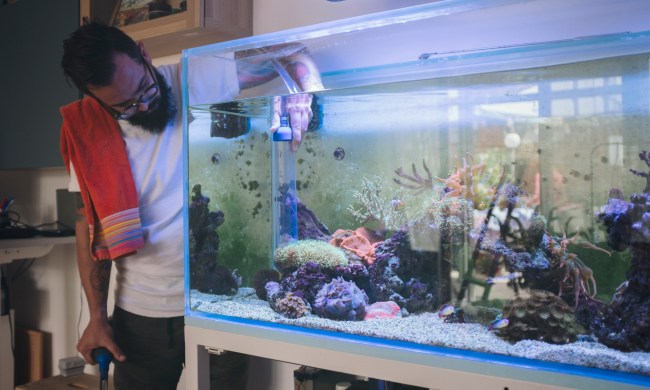There’s a reason owning a horse is so iconic. Nothing better represents the freedom of childhood combined with the responsibility of adulting. Keeping (and caring for) a horse isn’t like having a dog — far from it. Between grooming, riding, mucking out stalls, and providing the right combination of hay and grass, your kid will get overwhelmed fast. When your child starts begging for that elusive pony, think about these things before getting into equestrian ownership.
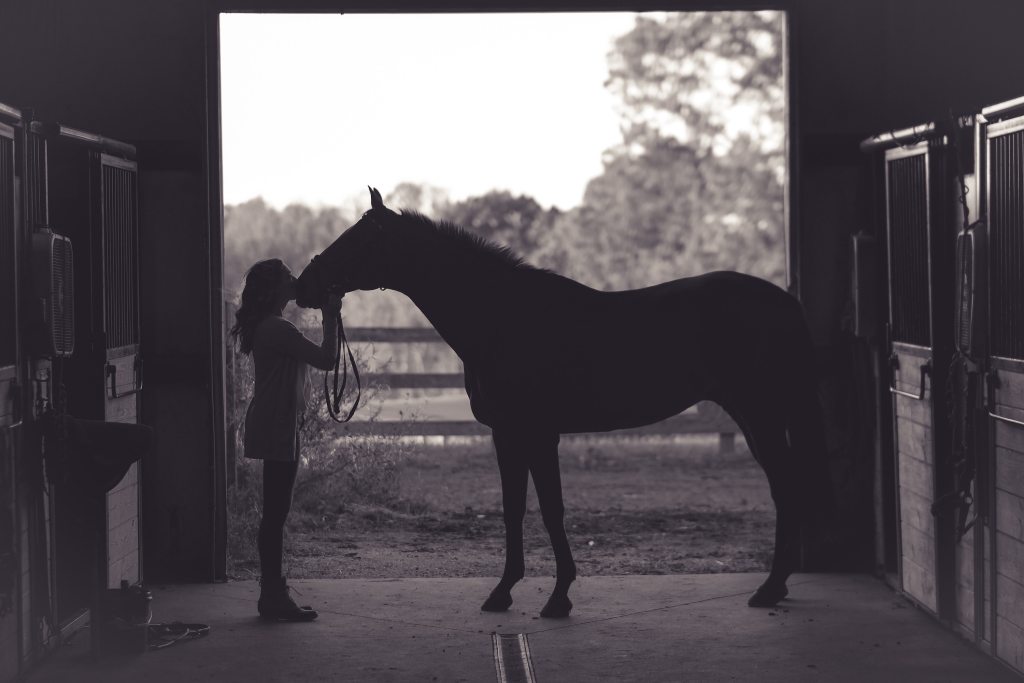
Will it be worth it to buy a horse?
Horses require a lot of commitment — of time and money. Even if you feel like lessons are draining your bank account, it’s almost certain that owning a horse will cost more. And you definitely won’t want to buy an equine only to discover your kid has moved on to gymnastics. It’s about $4,000 per year to take care of this beautiful creature, but that doesn’t include the time you need to put in or the upfront cost to buy your mount. Once you really factor everything in, it might make sense to keep working with someone else’s animal. You can also check out horse sharing, which has become popular among avid riders and can benefit everyone.
Is your child ready for a horse?
It can be tricky to tell if you have a horse forever fan or if it’s just a phase. A prolonged period of interest, excitement leading up to competitions, and dedication to the boring parts — like cleaning out the stall — can all be signs that you should look into getting a horse long-term. The good news is, as long as you’re boarding her somewhere great and partnering with an excellent vet, you’ll have a whole team to take care of this new huge responsibility. Before you bring one home, check to see if your kid’s really ready to take the plunge. Horse camp or volunteering at a stable can be a great way to assess for both of you. If your hippophile spends a few weeks cleaning excrement and still wants to sign on, that’s a promising sign.
How can you prepare for your new animal?
Okay, they’ve proven to you that your whole family is ready to take this on. Now what? There’s a lot to do before you sign those papers making you the proud owner of a brand-new pony.
- First, make sure you have somewhere for her to live, a good vet to help keep her healthy, and a solid plan for her riding schedule.
- Next, you need to figure out exactly what kind of horse will work best for your family. Sometimes an older animal or a pony can actually be exactly the right fit. Keep in mind that ponies can live up to 40 years and be active well into their 30s.
- Have a plan for after your horse can’t transport humans anymore. Find a really good place that will take her in and set aside funds for her end-of-life care — she deserves to go out in style.
You’ve done your research, but that’s only half the battle. Ultimately, you’ll know which horse you click with. Spend time with her and take her for rides before committing. Really, she’ll be the one to choose you.
What goes into horse care?
Once you pick her out, the real work begins. Horses need daily feeding, grooming, cleaning, and exercise to stay fit and healthy. Even if you hire an expert to keep up with much of this work, you (and your young one) should participate, too. Consider a stable that will apprentice your horse lover so that you’re all learning how to manage this beast long term. Set up a strict schedule for riding and stick to it. It’s best for both your kid and their companion to have a mix of lessons and more leisurely activities such as walking a trail. But both parties need to stay in shape and stay comfortable with each other.
The real question: Should you buy a horse for your child? Take all this in and then trust your gut. Only you truly know what’s right for your family. We’re sure you’ll make the right call. Remember that once you commit, you will be responsible for this beauty for years or even decades. Think ahead about what will happen if your child quits the sport or graduates while the horse has a lot of active years left. As long as you go through the proper decision-making and preparation processes, you’ll have one of the best experiences of your life.
